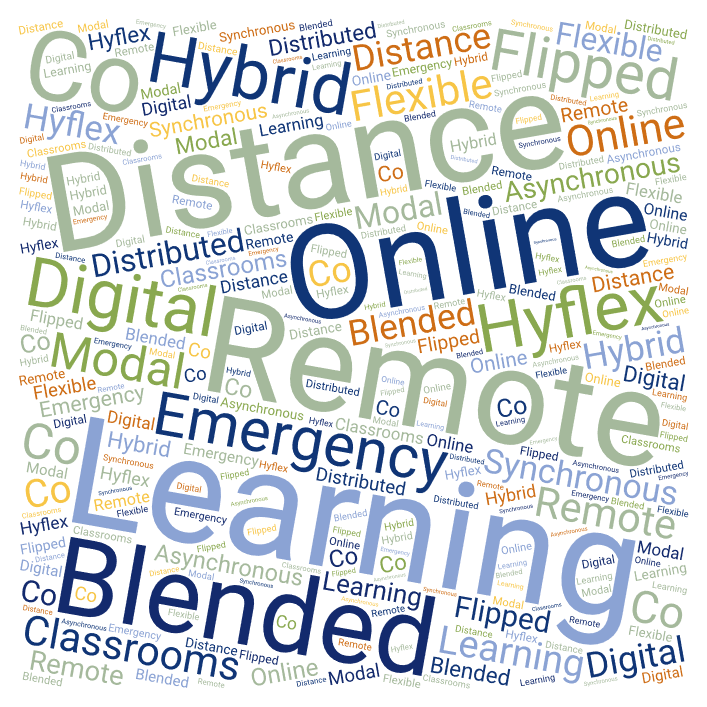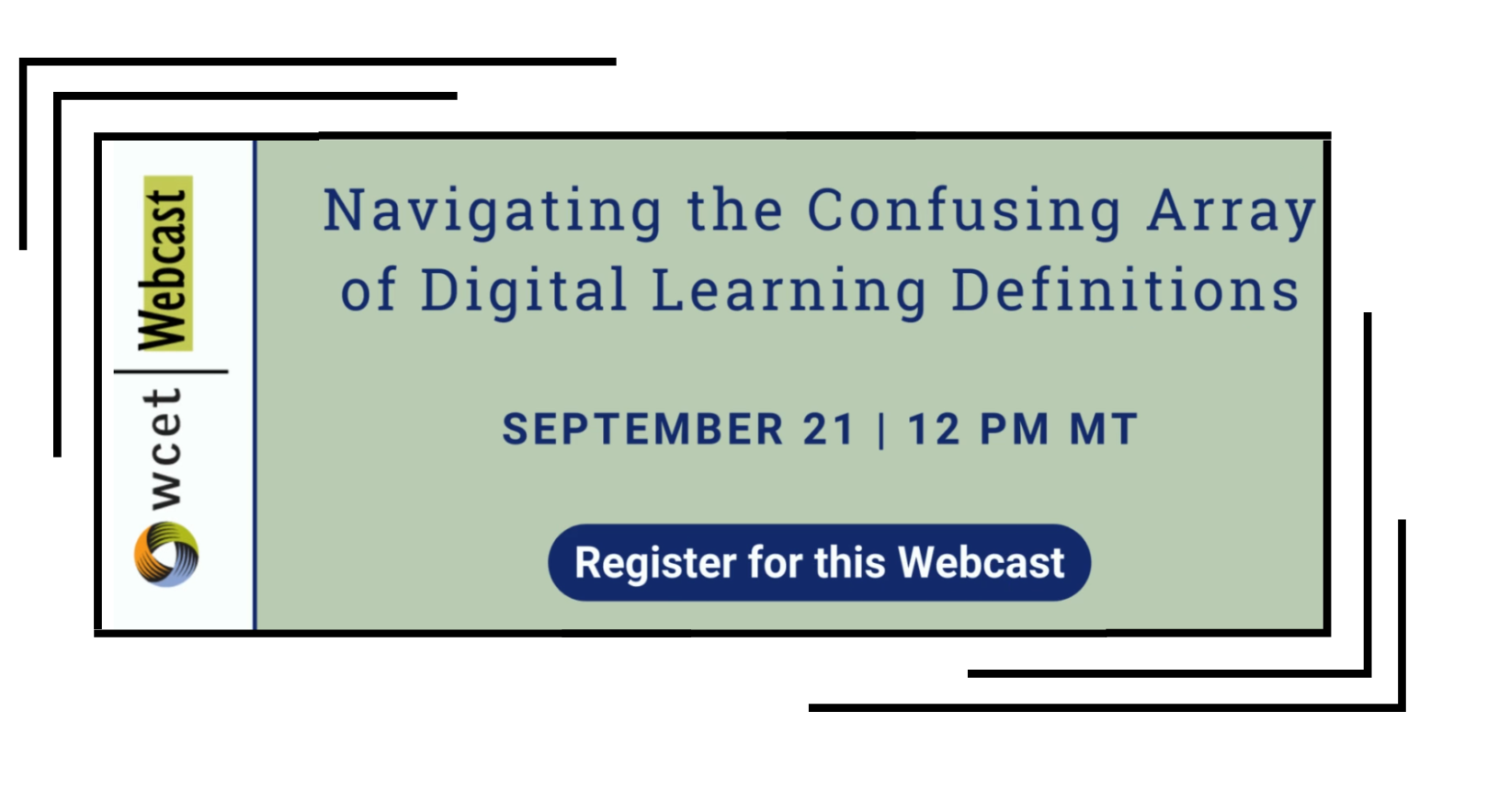Definitions of Digital and Distance Education Spotlighted by WCET this Fall
Published by: WCET | 9/15/2022
Tags: Distance Education, Managing Digital Learning, Online Learning, Student Success
Published by: WCET | 9/15/2022
Tags: Distance Education, Managing Digital Learning, Online Learning, Student Success
What term do you use to describe a course where technology allows faculty and students to connect over space and time? Any/all of these?

Distance learning. Online learning. Blended learning. Hybrid learning. Hyflex learning. Digital learning. Remote learning. Emergency remote learning. Flipped classrooms. Synchronous learning. Asynchronous learning. Co-modal learning. Distributed learning. Flexible learning.
Can you blame students, faculty, administrators, and the general public for being confused about all the terms we use?
One of the top three issues that the WCET Steering Committee sought to pursue in 2022 was a focus on sorting through these definitions. This year, there have been discussions on wcetMIX about how institutions are struggling with definitions that have once-again shifted in the post-COVID institutional environment…and the frustrations around that shift.
There are several works coming your way in the coming months…
What do faculty and administrators think about the definitions of common digital learning terms?
The Canadian Distance Learning Research Association (CDLRA) included some simple definitions of common terms in a survey they recently conducted. WCET engaged Nicole Johnson (who also heads the CDLRA) and Jeff Seaman (Bay View Analytics) to adapt and add to the survey for use in the United States. The first part of the survey asks about agreement of a simple definition of the following types of learning: “in-person,” “online,” “hybrid,” “hyflex,” “synchronous,” and “asynchronous.” We sought input from faculty and administrators from throughout the country using both targeted sampling and open calls to participate. For the latter, we greatly appreciated the help of the Online Learning Consortium (OLC), Quality Matters, and UPCEA in promoting their members to take the survey.
The results were published recently in the Online Learning Journal. The surprising conclusion:
Instead of confusion and contention about what these terms mean (as suggested by the literature), the findings revealed widespread agreement.
Watch for follow-up on this survey, including:

What are the policy expectations for the “distance education” definition?
In the past we have written several times about the definitions of “distance education,” which is the commonly used term by policymakers whether federal, state, accreditors, or others. Our posts included:
This fall, we will release a fresh analysis of “distance education” definitions used by federal agencies, states, accreditors, and others. We want to show that the variations in definitions that institutions face in regulations persist and that this may cause continued challenges for institutions trying to comply with requirements that vary by oversight agency.

Earlier this year we conducted a focus group of students from throughout the U.S. Rather than asking them about definitions, we asked them about what they need to know about their courses before they enroll in a course.
Essentially, the definitions don’t always matter.
Students need to know what is expected of them in terms of what, where, and when they need to participate in a course.
Our field of digital and distance education is shifting. We are still struggling with how best to describe what we do.
Thank you to the WCET Steering Committee Working Group members for leading on this pressing issue, including our co-chairs:
and the others on the team:
We hope that you will follow our work. And please participate when asked to engage in discussions about how to move forward.